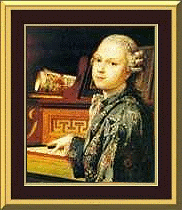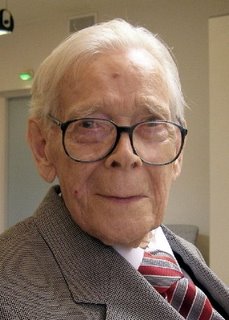
There are numerous studies claiming that listening to classical music has a calming and positive effect on a person. Even surgeons are known to listen to their iPods while operating on a patient. Some years ago it was claimed that listening to the music of Mozart made a person smarter. This
‘Mozart Effect’ also worked in reverse, as some people claimed that a bad performance of this music actually lowered their intelligence.
I seldom listen to classical music in order to relax. Perhaps all the years of playing and teaching put me automatically in a ‘find the mistakes, poor phrasing and faulty intonation’ mode. This is an unfortunate result of work vs. pleasure. Yes, I can treasure a wonderful performance from the past, but even then listening becomes very involved and not to be taken lightly. Recordings of more recent years tend to sound very unnatural because every little mistake that would have made the music sound live and true has been edited out. Even a bad instrumentalist can sound note-perfect and a very mediocre orchestra well-balanced and faultless. A listener often expects this perfection to carry onto the stage. It is surprising that anyone would even bother to come to hear a recital or a philharmonic’s concert as the performance inevitably won’t be as polished as on a compact disc. We often expect the unnatural in today’s world: why for instance is an old string instrument supposed to shine and shimmer when it has only remnants of the old varnish left? Sure it is easy to add a layer of hard polish on it to make it sparkle, but the result is no more genuine than a recording that has been artificially made to sound good. An old 78 could not be edited at all: the take was either accepted or a new one made. Artists are not machines: from some historical recordings we learn that a great instrumentalist like Rachmaninoff would make over 20 takes on a piece before he was happy with the results.
My daughter had been watching and listening to ‘Classical Arts Showcase’ on cable the other day, and I was about to turn the television off when I saw a group of musicians playing a piece by Johann Strauss, standing up, other than the cellos of course, in one of Vienna’s castles. It was obvious that these were not members of the Philharmonic as their playing wasn’t quite as polished and even their conductor wasn’t a familiar face to me. What caught my attention was the impeccable style and phrasing their music-making had. Growing up in the birthplace of great music has its benefits: the heartbeat of the Waltz was perfect, not just correctly played but lived through one’s soul. A bit later the Vienna Philharmonic played, again Strauss. They had a well-known conductor in this New Year’s program, but the musicians chose not to look up as they intimately knew how the music went, better than him.
Mozart is another composer whose music doesn’t require a pre-calculated interpretation, other than agreeing on some basic facts. There is no one ‘correct’ way of playing his music as it lends itself to almost an indefinite number of them, all equally valid. Yet Mozart can be butchered, a common way of hearing his music today. A pianist will do his best to chop the Steinway into logs for the fireplace; a violinist will try to turn a simple passage into a virtuoso showcase. An overly romantic vibrato and unnatural phrasing will easily ridicule the very essence of this glorious music. Instead of the real thing we are likely to hear Mozalt or Mozartsky, with an ethnic twist far removed from Austria. Since many of their idols play in this manner, it is no wonder our youngsters try to imitate this style. We often accept fakes as originals: Chop Suey and Chicken Chow Mein, followed by fortune cookies, are part of our ‘genuine’ Chinese cuisine, and many of our favorite Mexican dishes are purely domestic Tex-Mex and almost unknown south of the border. Not to blame Americans and their ignorance: people have always liked phony ethnic music. Mozart himself wrote numerous ‘Turkish’ pieces, Rimsky’s ‘Indian’ melodies are well known, Puccini became ‘Japanese’ in ‘Madama Butterfly’ and even Kreisler wrote a ‘Tambourin Chinoise.’
In an orchestra it is often refreshing when musicians are handed almost clean parts, with very few markings, and the conductor is able to show with baton what to do, often changing his ways from one performance to another. Nothing is worse than to have this great music dissected to death as this makes inspiration completely disappear, and instead of using one’s eyes for subtle indications, the poor musician is busy trying to decipher all the information penciled in. Mozart and other composers from that era don’t even necessarily need a conductor, as a good soloist is fully capable of indicating what is needed and desired, either from the keyboard or by playing along on the violin. A really first-rate chamber orchestra can play remarkably well together without anyone on the podium, as long as they hear each other and have keen eyes, just like in a string quartet.
Thank goodness Hershey’s never started manufacturing ‘Mozart Kugeln.’ Enough baking experiments exist under the name ‘Sacher Torte’: luckily ‘mit Schlag’ is universal and helps the bites go down.


